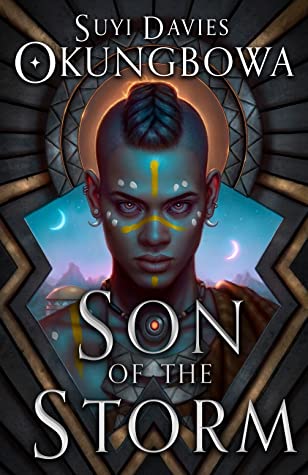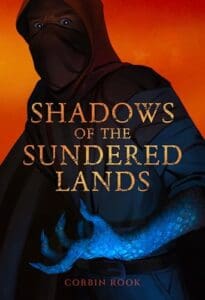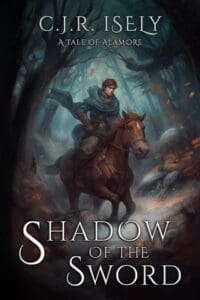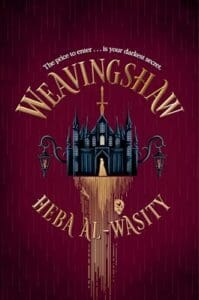Rating: 8/10
Synopsis
From one of the most exciting new storytellers in epic fantasy, Son of the Storm is a sweeping tale of violent conquest and forgotten magic set in a world inspired by the pre-colonial empires of West Africa.
“Everything I love in a fantasy novel. Damn good stuff!” —Jenn Lyons, author of The Ruin of Kings
In the ancient city of Bassa, Danso is a clever scholar on the cusp of achieving greatness—only he doesn’t want it. Instead, he prefers to chase forbidden stories about what lies outside the city walls. The Bassai elite claim there is nothing of interest. The city’s immigrants are sworn to secrecy.
But when Danso stumbles across a warrior wielding magic that shouldn’t exist, he’s put on a collision course with Bassa’s darkest secrets. Drawn into the city’s hidden history, he sets out on a journey beyond its borders. And the chaos left in the wake of his discovery threatens to destroy the empire.
Review
Another book in 2021’s fantastic library of diversity, Son of the Storm has been earmarked as one of the big books of this year, sitting in every list alongside other incredible book’s like She Who Became the Sun and The Unbroken. I’m massively honoured to get to read these books early and Son of the Storm was no exception to this. Suyi Davies Okungbowa isn’t a new voice in the world of Fantasy, but he isn’t an author I had come across before, I believe Son of the Storm to be his first full length published works and after reading this I genuinely can’t wait to see what else this man is able to imagine for us.
I’m going to start straight off with what I believe makes this book so good, the incredibly beautiful world that Suyi has built. The story of The Nameless Republic is based on the continent of Oon, Bassa is built on the western half of the continent, the Largest city on Oon, its power and influence spreading across almost the entire continent. Many people of different castes live here but Bassa is only truly home to the Idu, those of the truest blood and of the darkest humus, everyone else here is either mixed race and seen as lesser or an immigrant. The eastern continent is the Savanna Belt, home to the desert landers who trade with Bassa for many of the essentials the Bassai need. Between the two we have the Soke Pass that joins them together, the only trade route between these vastly different areas. Suyi has detailed his world beautifully, it drips in culture and is painted vividly for the reader, its multiple dialects, the clothes that the people wear and the difference between the castes, the life of its people from both high up and low down. The world that you are brought into is where the initial magic of this book comes from and what keeps it interesting as we go on. In his worldbuilding Suyis main talents as a writer shone, being able to write this incredibly detailed world without needing massive info dumps, his ability to get transfer the impressive amount of information feeling incredibly natural and in pace with the story.
Danso is our first main character, he is a Shashi, a mixed-race resident of Bassa, his father a mainlander and his mother an outlander. Danso is a scholar at the University, a Jali Novitiate, a position only normally given to the Idu, but something that was allowed due to Danso’s ability to absorb and remember everything, a condition we call hyperthymesia, and something that makes him potentially the greatest scholar Bassa has ever seen. But because Danso is Shashi he is always discriminated against and looked down on, our first introduction quickly introduces us to this caste system and shows us quickly how harsh life is for anyone outside of the Idu.
“If belonging to both the highest and lowest castes in the land at the same time taught one anything, it was when people had to choose where to place a person, they would always choose a spot beneath them”
Esheme is next, Danso’s intended and another Jali Novitiate, right off the bat you are introduced to Esheme’s confidence and power, she is clearly going to be a force in this world and her story arc is definitely the wildest and the events that happened weren’t anywhere near what I guessed would happen. She was an incredibly strong and brutal character, and the book was so much more interesting because of her, book two is going to absolutely spiral for her and I don’t know what insanity we will see come next.
“But Esheme knew that rules only worked for those who fit neatly within them. She could be the most rule -abiding person, but as long as anyone believed that she was an Emuru by blood and did not belong in the Idu caste, they would treat her as such. She was tired of trying to earn respect. Perhaps it was time to start taking it by force”
Lilong was introduced halfway through and became our third main POV, she is a “Yellow Skin” (please see below before jumping to conclusions), and her introduction and story are really start the avalanche of events in this book. She was with no doubt my favourite character, her sass and attitude giving me moments of laughter, her skills and abilities making her incredibly interesting. She will be who I’m most excited to continue reading when we get to book two, if only so we get a clearer look at the Islands, the lore, and the people that Bassa fear so much.
The story is a mass of POVs, the people surrounding Danso and Esheme, their own families and interactions forming then attaching POVs, and in the end I believe we had 11+ POV characters, some having just one chapter, some having more when their stories became more important. This has always been a struggle for me because every extra POV pulls away time from an MC and makes it that much harder to connect with the characters. My biggest issue with the book is that I never felt any attachment any of the characters, Suyi definitely didn’t follow any of the classic hero characterization’s with this book so we didn’t get the regular cast of heroes or villains, but I found them all relatively annoying at points in a way that turned me away from them, sometimes conversations between them feeling rigid and what was said by these characters feeling intentionally ignorant or stupid purely to fulfil a point the author wanted to make.
Son of the Storm is heavily based on African culture, and if it isn’t clear one of the main themes in the book being colourism, a concept that intertwines with Racism but distinct in its own respect. This is a sort of discrimination that is based on the skin tone of the person and is the main theme the entire way through the book, you see it in more detail as the book goes on, Seconds for example, men who’s job it is to protect people of the Idu, punished if their charges cause issues, however it’s their job to follow the instructions of their charge at all times or face the same punishment, the threat of deportation always there regardless of what they do.
Now just so you are aware, and I felt it important to add, Suyi uses the term “Yellow skins”, and I did see a small amount of backlash regarding this. Suyi did publish a statement for those unclear but all the people mentioned in Son of the Storm are black/African inspired, in Nigeria where Suri comes from, yallow is used as a slur against people with lighter skin tones, or people who have albinism. Throughout history people with albinism have been persecuted and in Africa this was no different, Suri has taken that history and used it in his own story. The Yellow Skins we meet are people that live on the islands to the north, feared for their magics (pertaining to the fact that albinos in history have been seen as witches) and made to be a focus of the Bassai’s hate and anger.
I loved that Suyi very much mirrored the two very different worlds that he lives in, the author lives between Lagos, Nigeria and Tucson, Arizona, you can see the two cultures and histories Suyi experiences mixed throughout this book. Bassa is clearly a capitalist society as much as its maybe masked otherwise, the country being led mostly by the people that own and run the economy. Bassa feeling very much like our own capitals cities, the centre being a shining, glorious beacon to power and wealth and ten minutes down the road being able to find signs of disparity and absolute poverty. Its leaders hiding the actual issues using people’s fears, fuelling the fires of hatred to pull attention away from what’s important. At one point we even have someone mutter “Make Bassa great again”. This all felt so vivid and real to me, I could imagine what was being said, imagine the acts of these desperate people because we’ve seen so much of this hatred and ignorance in our own recent events. All authors try and pull something out of our own world as a way to help immerse the reader, but few people have done this as well as Suyi did for me.
“We’re weak, ripe for the taking if anyone were bold enough to overlook our past glory and conquests. Our Speaker was murdered by one invader, for moon’s sake. The Coalition for New Bassa wants nothing but to make the mainland great again. But the truth is we cannot do it alone, we need the people to rally behind us, because that is where true power lies.”
My only other issue was upon finishing the book I did struggle with the ending, it definitely wasn’t what I expected or wanted, and the author has used it to springboard the events of the next book and because of that I felt there wasn’t a great amount of mystery about what will happen in book two. However, I want to say very clearly that Suyi is a master storyteller, the ending may not have been what I wanted but he did an incredible job of pulling together an amazing story, this book lacked so many of the classic tropes we get in fantasy, which meant we got something that felt exciting and genuinely fresh. I waffled in this review and there was more I wanted to mention, I want to talk about the fantastic magic system Suyi built, I want to talk about the creatures and monsters that he imagined for us, but instead maybe you should just read it.
I think this series will only get better as it goes on and I look forward to seeing what Suyi Davies Okungbowa pulls out for Warrior of the Wind, book two in The Nameless Republic series.
Thanks for reading.





Leave a Reply